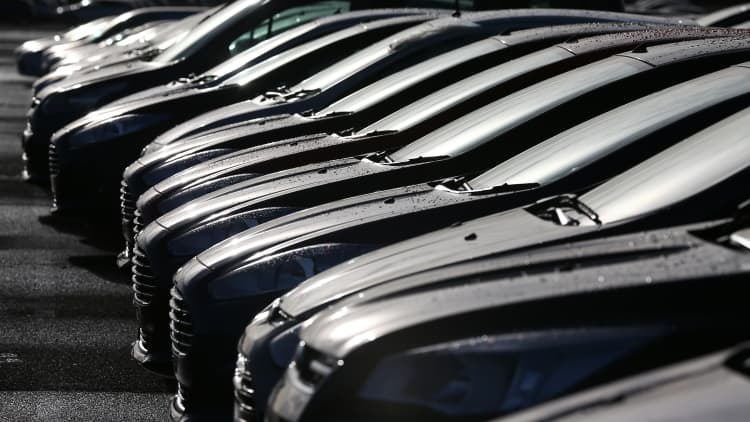U.S. car sales in 2020 were expected to be slightly below the near-record levels seen in recent years.
Then the coronavirus struck the United States.
Auto sales forecasts have fallen by millions of units from where they were in early 2020, sparking automakers to roll out unprecedented deals and adopt new tech-heavy methods of selling vehicles to shoppers stuck at home.
The pandemic is something the U.S. auto industry has never faced before, but analysts see hints of the past in it. Carmakers are confronted with supply chain challenges, restrictions on production, and, perhaps most worrying, severe dents in consumer demand sparked by shelter-in-place orders from governments and economic effects, such as job furloughs or layoffs.
Automakers are taking pages out of playbooks used in other challenging times, such as in the weeks and months after the terrorist attacks of Sept. 11, 2001.
At that time, U.S. automotive behemoth General Motors launched its "Keep America Rolling" program which advertised loans at 0% interest across its entire fleet. Automakers had long relied on incentives, but typically used them to move unwanted product, such as a slow-selling model. Keep America Rolling was a far broader program than had ever been seen before. Other automakers soon followed and car sales quickly rebounded.
The auto market is already seeing something of a revival of the program in many of the incentives on offer.
Dealers are also trying some entirely new things: they are moving online. While online car sales were already a growing force in the automotive world, the spread of the virus has sped up dealer participation.
Tracking service Dealertrack said that as of mid-April, electronic transactions were up nearly 65% over where they were at the same time in 2019.
Experts are unsure how long incentives will last, but say the pandemic could make an enduring change to the way consumers buy cars.



